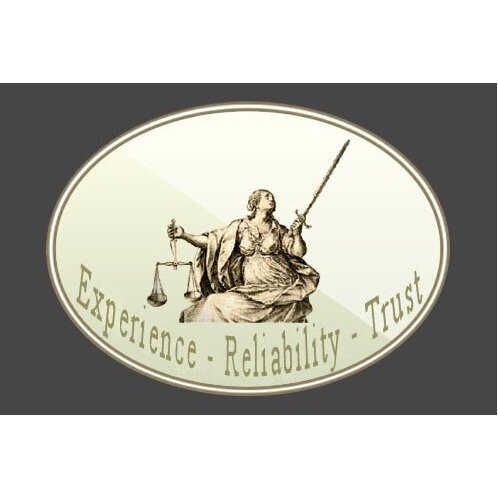Best Trusts Lawyers in Pattaya
Share your needs with us, get contacted by law firms.
Free. Takes 2 min.
List of the best lawyers in Pattaya, Thailand
Thailand Trusts Legal Articles
Browse our 1 legal article about Trusts in Thailand written by expert lawyers.
- Estate planning goes beyond wills
- Estate planning is an important if not essential task that everyone should be concerned about. This is especially true if you are married or have children, if you own a business or hold substantial assets that you want to protect if you pass away or are incapacitated, particularly in today’s... Read more →
About Trusts Law in Pattaya, Thailand
Trusts law in Pattaya, as in the rest of Thailand, is a specialized branch of legal practice. Trusts are not traditionally recognized under Thai law in the same manner as in countries like the United States or the UK. However, the concept has been gradually introduced through specific legislation, particularly in areas like commerce and foreign investment, allowing for more flexibility in asset management. The legal framework for trusts may still be developing, but Thai law does permit the establishment of trusts in certain contexts, notably real estate investment trusts (REITs) and for financial securities.
Why You May Need a Lawyer
There are several scenarios where legal guidance is crucial for establishing or managing a trust in Pattaya. These include:
- Foreigners looking to participate in a real estate investment using a trust structure.
- Businesses needing to create a trust for facilitating investment or financial transactions.
- Individuals or entities interested in using a trust for estate planning purposes.
- Understanding and complying with Thai regulations and tax implications associated with trust management.
- Resolving disputes related to trust agreements or distributions.
A professional attorney with experience in Thai trusts law can provide legal clarity and ensure your trust is compliant with local laws.
Local Laws Overview
Some key aspects of trust laws relevant to Pattaya include:
- Real Estate Investment Trusts (REITs): Legally recognized under Thai law for foreigners to engage in property investments with a specialized structure.
- Commercial Trusts: These are used for investment and finance sectors and are recognized under the Trust for Transactions in Capital Market Act of 2007.
- Trustee Roles: Trusts must have a Thai trustee to comply with regulations. Trustees manage the trust and ensure adherence to the agreed terms and laws.
- Regulatory Body: The Securities and Exchange Commission of Thailand (SEC) regulates and supervises trusts, particularly those that operate in securities and investments.
- Taxation: The tax implications for trusts can be complex. Trusts might be subject to corporate income tax, VAT, or other financial regulations.
Frequently Asked Questions
What exactly is a trust in the context of Thai law?
A trust in Thailand is a legal arrangement recognized chiefly in financial and real estate sectors, where assets are transferred to a trustee to manage for the benefit of beneficiaries.
Can foreigners create and benefit from a trust in Thailand?
Yes, foreigners can participate in and benefit from certain types of trusts, especially in real estate investment and capital markets, although there might be specific restrictions and conditions they need to meet.
Are there specific regulations governing trusts in Thailand?
Yes, there are specific laws, such as The Trust for Transactions in Capital Market Act of 2007, which establish the legal framework for trusts, particularly in the investment and finance sectors.
Do I need permission from a governmental body to establish a trust?
Trusts related to capital markets and real estate must comply with SEC regulations, and thus, may require certain filings or permissions.
What are the roles and responsibilities of a trustee?
The trustee is responsible for managing and administering the trust in accordance with its terms and applicable Thai laws, ensuring the interests of beneficiaries are protected.
How does taxation work for trusts in Pattaya?
Trusts may be subject to corporate income tax and other relevant taxes. Taxation can depend on the trust’s activities and how income is distributed among beneficiaries.
Can a trust be challenged in Thai courts?
Yes, like any contractual arrangement, the terms of a trust or its administration can be contested in Thai courts, often necessitating legal assistance.
What are common uses of trusts in Thailand?
Trusts are commonly used for investment purposes, such as REITs, and for estate planning, offering a mechanism for managing assets efficiently and legally.
How can one ensure compliance when establishing a trust?
Compliance can be ensured by consulting with experienced legal professionals familiar with Thai trust law and ongoing updates in regulations.
What happens if a trust violates Thai law?
Violations can lead to penalties, including fines and nullification of trust agreements. Legal counsel can help mitigate these risks by ensuring full compliance from inception.
Additional Resources
For further information and assistance, you may consider consulting the following resources:
- The Securities and Exchange Commission of Thailand (SEC): Oversees the regulation of trusts in capital markets.
- Thai Revenue Department: Offers guidance on taxation matters related to trusts.
- Local Law Firms Specializing in Trusts: Can provide specialized and up-to-date legal advice.
- Expatriate Communities: Online forums and community groups where expatriates share legal experiences and advice.
Next Steps
If you find yourself in need of legal assistance regarding trusts in Pattaya, Thailand, here are some recommended steps:
- Research and identify reputable law firms in Pattaya that have expertise in trust law.
- Schedule consultations with potential lawyers to discuss your specific needs and understand their approach.
- Ensure the lawyer is well-versed in both Thai law and international trust principles if you're a foreign national.
- Prepare all necessary documents and information related to your trust requirements for a comprehensive legal consultation.
- Be proactive in understanding the legal process and remain informed about any changes in local laws that may affect your trust.
Having the right legal guidance will greatly enhance the smooth creation and administration of your trust in Pattaya, ensuring all legal obligations are met efficiently.
Lawzana helps you find the best lawyers and law firms in Pattaya through a curated and pre-screened list of qualified legal professionals. Our platform offers rankings and detailed profiles of attorneys and law firms, allowing you to compare based on practice areas, including Trusts, experience, and client feedback.
Each profile includes a description of the firm's areas of practice, client reviews, team members and partners, year of establishment, spoken languages, office locations, contact information, social media presence, and any published articles or resources. Most firms on our platform speak English and are experienced in both local and international legal matters.
Get a quote from top-rated law firms in Pattaya, Thailand — quickly, securely, and without unnecessary hassle.
Disclaimer:
The information provided on this page is for general informational purposes only and does not constitute legal advice. While we strive to ensure the accuracy and relevance of the content, legal information may change over time, and interpretations of the law can vary. You should always consult with a qualified legal professional for advice specific to your situation.
We disclaim all liability for actions taken or not taken based on the content of this page. If you believe any information is incorrect or outdated, please contact us, and we will review and update it where appropriate.













